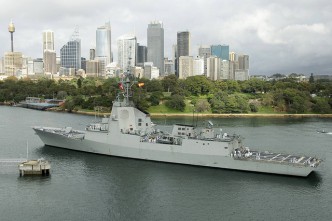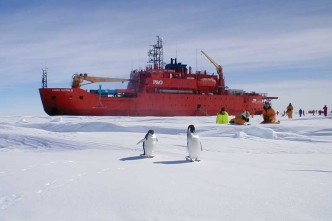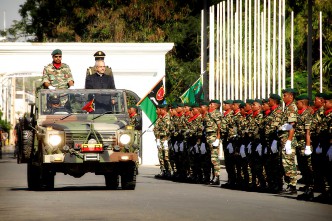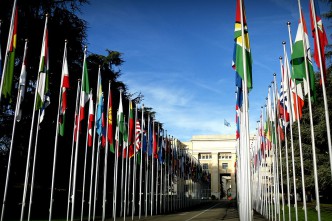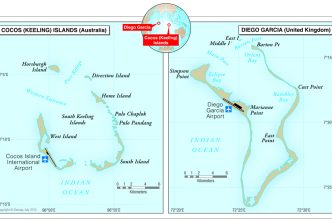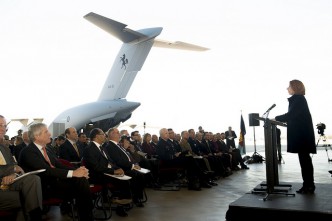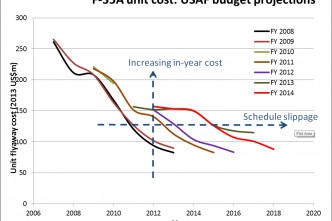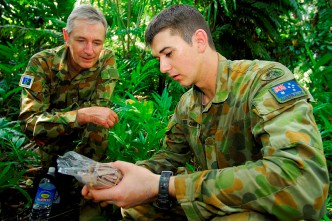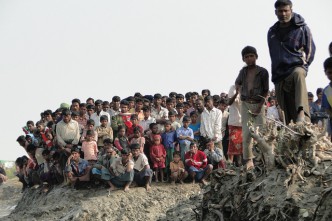The latest Defence White Paper and the co-released Future Submarine Industry Skills Plan mark a distinct sea-change (pun intended) in the relationship between Defence and Industry, at least in the field of shipbuilding. If all …
On 23 April, Timor-Leste notified Australia that it had initiated arbitration under the 2002 Timor Sea Treaty of a dispute related to the 2006 Treaty on Certain Maritime Arrangements in the Timor Sea (CMATS). I’ve …
Guest editor Anthony BerginAustralia made its last significant new investment in Antarctic logistic capability during the Howard government years, when we funded an intercontinental air capability in the form of a commercial Airbus A319 flying …
Over the past year, low-level but concerning brinkmanship has continued in the Asia Pacific, with China maintaining the pattern of provocation that emerged following the 2008 global financial crisis. As Ross Terrill put it recently, …
The recent release by the New South Wales Government of an International Engagement Strategy invites comparison with the federal blueprint, the Asian Century White Paper. Both aim to boost growth via more overseas contact but …
Coming just a week after the inaugural South Pacific Defence Ministers Meeting in Tonga, Friday’s Australia–Papua New Guinea Defence Cooperation Arrangement helps cement the new Defence White Paper’s emphasis on security cooperation in our near …
In my previous post, I explained how separatist attempts throughout Indonesia’s history have led to Indonesian sensitivities over Papuan separatism today. We take every opportunity to earnestly reassure the Indonesian side of our unwavering support …
To see how difficult it is to do normal business with Fiji’s military regime, consider the problem of getting the new Australian High Commissioner into Suva. Wednesday will mark the six-month point in a diplomatic …
Last week, a major UN conference on nuclear non-proliferation and disarmament (known as the 2013 NPT PrepCom) wrapped up in Geneva. The outcome? Yet another frustratingly weak factual summary, reflecting the seemingly irreconcilable positions of …
One issue, above all others, starkly differentiates the jobs of Indonesian President and Australian Prime Minister. When our Prime Minister wakes each morning, the first question she asks isn’t: “Do I still have a whole …
You can do a lot with a coral atoll. The US uses the leased UK territory of Diego Garcia ‘To provide forward support to operational forces forward deployed to the Indian Ocean and Persian Gulf…’. …
Defence White Paper 2013 is well written and largely internally coherent, except for the absence of an investment plan to execute its policy and strategy objectives. It often tries making virtues out of necessities politically, …
Guest editor Anthony Bergin The issue of Antarctic geologically based resources hasn’t been discussed seriously for decades and for two good reasons. There’s been no serious interest by industry for sensible economic reasons. We’ve also …
ASPI’s official blog, The Strategist, has been providing fresh ideas and considered analysis of Australia’s strategy and defence issues since July last year. To help us keep bringing you the best quality analysis, please take …
I’ve been plotting the gross measures of the progress of the F-35 Joint Strike Fighter program pretty much since the day I joined ASPI back in 2006. It hasn’t always been a pretty story. It …
The vista from the White House is very different from the “serenity” that is seen from the front lawn of the Lodge. This is evident in Andrew Smith’s post DWP 2013—what will the Americans think?. …
A couple of weeks ago my colleague Toby Feakin, wrote on The Strategist about the recently released United Nations Office on Drugs and Crime’s assessment on Transnational Organized Crime in East Asia and the Pacific, …
In financially-constrained times we need to think of innovative ways to promote useful but low-cost security cooperation in our region. Developing Australia’s capacity to provide emergency food relief would enhance our international reputation and support …
There was a time back in the 1990s when the Defence Annual Report listed not just the availability of the Navy’s various platforms for deployment, but also the actual number of days at sea for …
Early last month, 80 Muslim Rohingya from Rakhine state were detained by local police on an island off Sumatra as they made their way to Malaysia. On the previous day in East Java, Rohingya were …


